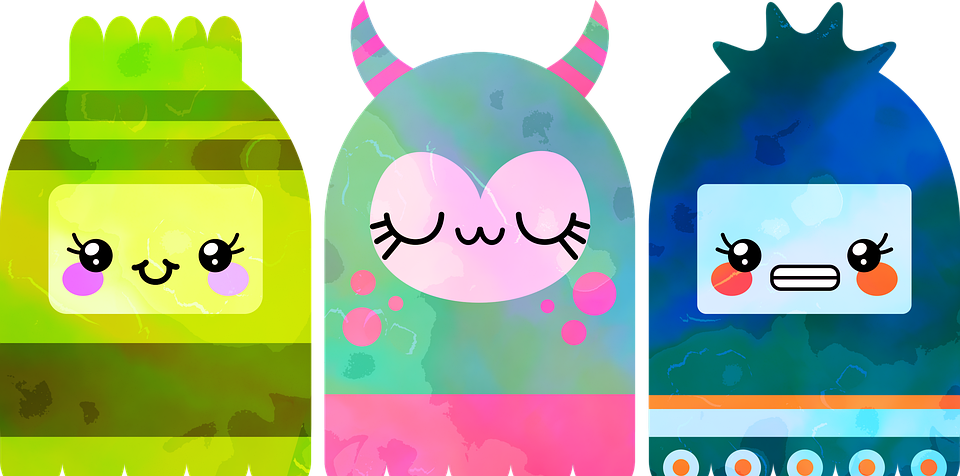This comprehensive guide explores the potential toxicity of Monstera plants to cats, addressing concerns and providing practical advice for cat owners. We'll delve into the specific compounds that make these popular houseplants potentially harmful, examine the symptoms of Monstera poisoning in cats, and discuss the necessary steps to take if your feline friend ingests any part of this plant. We'll also cover preventative measures you can take to keep your cat safe, along with helpful FAQs to address your concerns about these captivating plants.
Part 1: Understanding Monstera Plants and Their Toxicity

1.1. Unveiling the Monstera Family
Monstera plants, commonly known as Swiss cheese plants, are renowned for their distinctive, large, heart-shaped leaves with striking holes and splits. These captivating plants, belonging to the Araceae family, encompass numerous popular houseplant varieties. Popular examples include:
- Monstera deliciosa
- Monstera adansonii (Swiss cheese vine)
- Monstera obliqua
- Monstera borsigiana
- Monstera dubia
- Monstera siltepecana
1.2. Calcium Oxalate Crystals: The Culprit
The primary cause of potential toxicity in Monstera plants lies in the presence of insoluble calcium oxalate crystals, specifically in the form of raphides. These needle-shaped crystals, found throughout the plant, are particularly concentrated in the leaves and stems.
1.3. The Mechanism of Toxicity: A Closer Look
When a curious cat chews on a Monstera plant, these sharp calcium oxalate crystals can penetrate the soft tissues of their mouth, tongue, and digestive tract. This penetration causes a burning sensation and irritation, leading to a range of unpleasant symptoms. The crystals also trigger an inflammatory response in the body.
Part 2: Recognizing the Signs of Monstera Poisoning in Cats

2.1. Oral Irritation: The First Warning Signs
The most immediate symptom of Monstera poisoning is oral irritation. Cats may exhibit:
- Excessive drooling
- Pawing at their mouth
- Difficulty swallowing
- Swelling of the lips, tongue, or mouth
- Redness or inflammation of the mouth and tongue
2.2. Gastrointestinal Distress: A Follow-Up
Ingesting Monstera leaves can also lead to gastrointestinal upset, manifested as:
- Vomiting
- Diarrhea
- Abdominal pain
- Loss of appetite
- Decreased bowel movements
2.3. Beyond Oral and GI: Potential Complications
In severe cases, Monstera poisoning can cause:
- Difficulty breathing (due to swelling in the throat)
- Weakness or lethargy
- Tremors or seizures
- Kidney failure (rare, but possible)
Part 3: Immediate Action: What to Do If Your Cat Ingests Monstera
3.1. Remove the Threat: First Aid
If you suspect your cat has eaten Monstera, it's crucial to act swiftly:
- Remove the plant from your cat's reach immediately. Secure the plant in a location that is inaccessible to your cat.
- Inspect your cat's mouth for any visible signs of irritation. Look for redness, swelling, or signs of pain.
- Offer your cat fresh water to encourage hydration. Keep the water bowl full and accessible.
3.2. The Importance of Veterinary Consultation
Regardless of the severity of the symptoms, it's always advisable to contact your veterinarian. They can assess the situation and provide tailored advice based on your cat's individual condition.
3.3. Veterinary Treatment Options: Tailored Care
Depending on the severity of the poisoning, your veterinarian may recommend:
- Administering anti-inflammatory medications to reduce oral irritation. Medications can help reduce swelling and discomfort.
- Providing supportive care, including fluids and pain relief. Intravenous fluids can help prevent dehydration, and pain medication can alleviate discomfort.
- In severe cases, inducing vomiting or administering activated charcoal to absorb toxins. These treatments are typically used in severe cases when significant ingestion is suspected.
Part 4: Preventing Monstera Poisoning: A Proactive Approach
4.1. Keeping Plants Out of Reach: A Safety First Strategy
The most effective way to prevent Monstera poisoning is to keep the plants out of your cat's reach. This can be achieved by:
- Placing the plant in a high, inaccessible location. Utilize high shelves, hanging baskets, or cat-proof plant stands.
- Using a cat-proof plant stand or shelf. Invest in sturdy, cat-resistant furniture designed for plants.
- Enclosing the plant in a barrier that your cat cannot penetrate. Use mesh screens, plastic covers, or other barriers to create a safe enclosure.
4.2. Providing Alternatives: Enriching the Environment
Cats are often drawn to plants for enrichment and play. Offering alternative, safe options can help redirect their attention away from Monstera:
- Grow cat-friendly herbs like catnip, wheatgrass, or catmint. These plants offer safe chewing and sensory stimulation.
- Provide toys and scratching posts to engage their natural instincts. Offer interactive toys and scratching surfaces to keep your cat entertained and stimulated.
4.3. Supervision and Training: A Long-Term Strategy
Constant supervision, especially during the initial stages of introducing a new plant, is crucial. Training your cat with positive reinforcement can also help discourage chewing on plants. Reward your cat for positive behaviours and redirect them from unwanted activities.
Part 5: Addressing Your Concerns: Frequently Asked Questions
5.1. Are All Monstera Varieties Poisonous?
Yes, all Monstera varieties contain calcium oxalate crystals and are considered potentially toxic to cats.
5.2. Is Monstera Poisoning Fatal?
While Monstera poisoning is rarely fatal, it can cause significant discomfort and health complications. It's crucial to seek veterinary attention if your cat has ingested any part of the plant.
5.3. What if My Cat Only Took a Small Bite?
Even a small bite can cause oral irritation and discomfort. It's still advisable to monitor your cat for symptoms and contact your veterinarian if necessary.
5.4. Are Monstera Plants Safe for Other Pets?
Monstera plants can also be toxic to other pets, including dogs, rabbits, and birds. It's best to keep them out of reach of all pets.
5.5. Can I Still Own Monstera Plants if I Have a Cat?
Yes, you can still own Monstera plants if you have a cat, but it requires careful planning and precautions. By taking preventative measures and providing alternatives, you can safely enjoy these beautiful plants in your home.
5.6. What Should I Do with My Monstera Plant if I Can't Keep It Out of Reach?
If you're unable to keep your Monstera plant completely out of your cat's reach, it may be best to consider rehoming it or gifting it to someone who doesn't have pets.
5.7. How Can I Identify a Monstera Plant?
Monstera plants are easily identifiable by their large, heart-shaped leaves with distinctive holes and splits. They can grow quite large, and their stems are typically thick and strong.
5.8. Can Monstera Plants Be Poisonous to Humans?
While not typically fatal to humans, Monstera plants can cause mouth irritation and digestive discomfort if ingested. Keep them out of reach of children and avoid direct contact with the sap.
This article has provided a comprehensive overview of the potential toxicity of Monstera plants to cats. Remember, while these plants are beautiful and popular, it's essential to prioritize your cat's safety and well-being. By understanding the risks and taking necessary precautions, you can create a safe and enriching environment for both your feline friend and your beloved houseplants.
Everyone is watching
-

Are Cat Ribs Flexible? Understanding Their Anatomy
CATS & KITTENSThis article delves into the fascinating world of feline anatomy, exploring the flexibility of cat ribs and ho...
-

Can Cats Eat Bananas? (Everything You Need to Know)
CATS & KITTENSThis article dives into the intriguing question of whether cats can safely enjoy the sweet, yellow fruit, bana...
-

Cat Lifespan: How Long Do Cats Live?
CATS & KITTENSThis comprehensive guide explores the factors influencing the lifespan of our feline companions, providing ins...
-

Can Cats Get COVID-19? What You Need to Know
CATS & KITTENSThis article will delve into the fascinating world of feline COVID-19 susceptibility. We'll explore whether ca...
-

Can Cats Eat Eggs? A Complete Guide to Egg Safety for Your Feline Friend
CATS & KITTENSWhen it comes to treating our furry companions, we all want to ensure we're doing what's best for them. Eggs...
